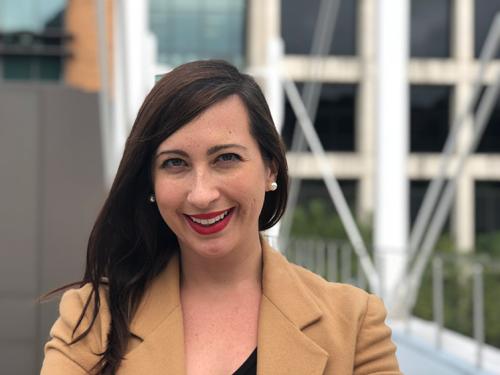A Chat with Billy Table

What’s your academic story?
I received my B.A. degree from Florida Gulf Coast University in Communication Studies and my M.A. degree from the University of Central Florida in Communication Studies and Gender Studies. My mentors in my M.A. program (Dr. Harry Weger and Dr. Jennifer Sandoval) cultivated my knowledge of research and teaching and encouraged me to pursue a PhD in communication.
I entered the doctoral program at The University of Texas at Austin in 2016 with the intent to focus on interpersonal health communication. Dr. Erin Donovan became my academic advisor and has given me many teaching and research opportunities through The Center for Health Communication.
Tell me about the grant you’re currently working on with Dr. Donovan.
Dr. Erin Donovan has worked with the College of Pharmacy to assemble an interdisciplinary teaching team to instruct Doctor of Pharmacy students on communication skills. The purpose of the course is to prepare future pharmacists to become more skillful communicators, which will help them as they interact with patients and navigate a variety of professional contexts.
As the Teaching Assistant for this course working with our postdoctoral fellow Dr. Laura Brown, I lead a weekly lab in which the pharmacy students practice communication skills such as impression management, rapport building, giving feedback, and active listening. These hands-on labs challenge students to demonstrate and assess their interpersonal competence with patients and colleagues. The funding for this project supports the work that we do to teach the course as well as to conduct a longitudinal study of best practices for training PharmD students in communication skills.
What is the focus of your research?
Broadly, my research focuses on interpersonal health communication.
More specifically, my research focuses on communicating about stigmatized health topics, privacy management, difficult conversations, social support, and patient-provider relationships.
Recent projects include a study of health professional’s responses to integrated trainings on gender, sexuality, and disability; how individuals undergoing medical transition perceive supportive communication from their romantic partners.
How did you become interested in the area of your study?
I am fascinated with the effect of communication on relational and health outcomes as well as how the state of our health motivates or challenges how we communicate with our families, partners, and healthcare providers.
What else are you currently working on?
I am a doctoral fellow for The Center for Health Communication, and our present focus is promoting mental health awareness as a public health issue. We aim to develop resources for effectively communicating about challenging topics surrounding mental health as well as bringing the UT-Austin community together with interdisciplinary research talks and outreach to mental health organizations.
I am also a mentor in the Intellectual Entrepreneurship program, which is a campus-wide internship connecting undergraduate students with graduate students in their field of study. I have three mentees who I meet with regularly to coach on professional communication skills and provide hands-on research experience.
In addition to teaching over in Pharmacy, I am also an instructor here in Moody for 306M, Professional Communication Skills. My favorite thing about teaching this class is seeing nervous students go from unsure speakers to TED Talk ready presenters!
What are your professional goals?
My professional goals are to finish my PhD in 2020, continue growing as a researcher and instructor, and to cultivate my mentorship network at UT and beyond.
What are the challenges you face when teaching communication to CMS students versus teaching communication in science based disciplines?
For CMS students, they’re already excited to learn about communication when they step into the classroom. We make a conscious effort to help our non-communication students clearly see the links between skillful communication and professional success.
What is your philosophy of teaching/learning?
As a teacher, I approach students with empathy and perspective taking. As a learner, I approach research and theory with a critical and creative eye.

